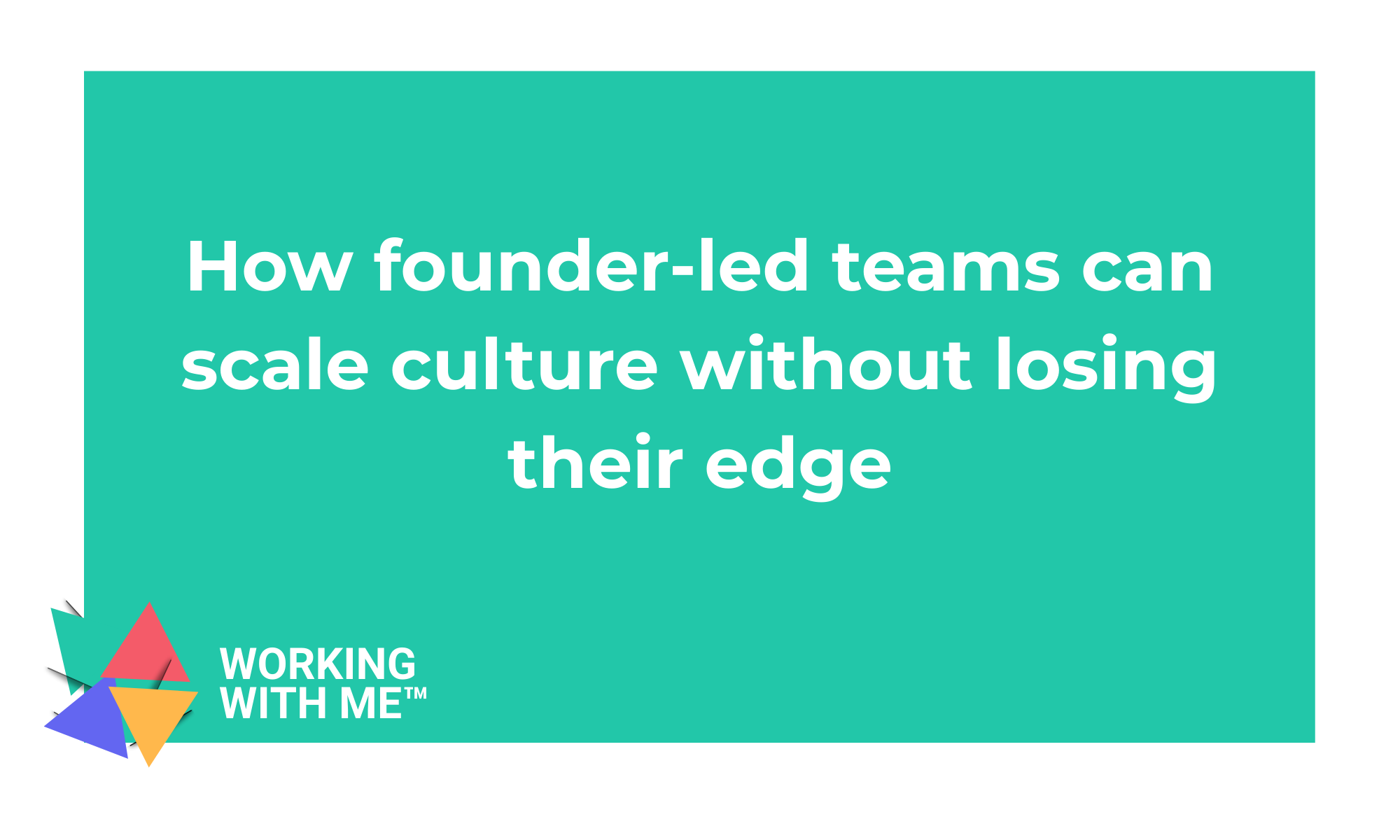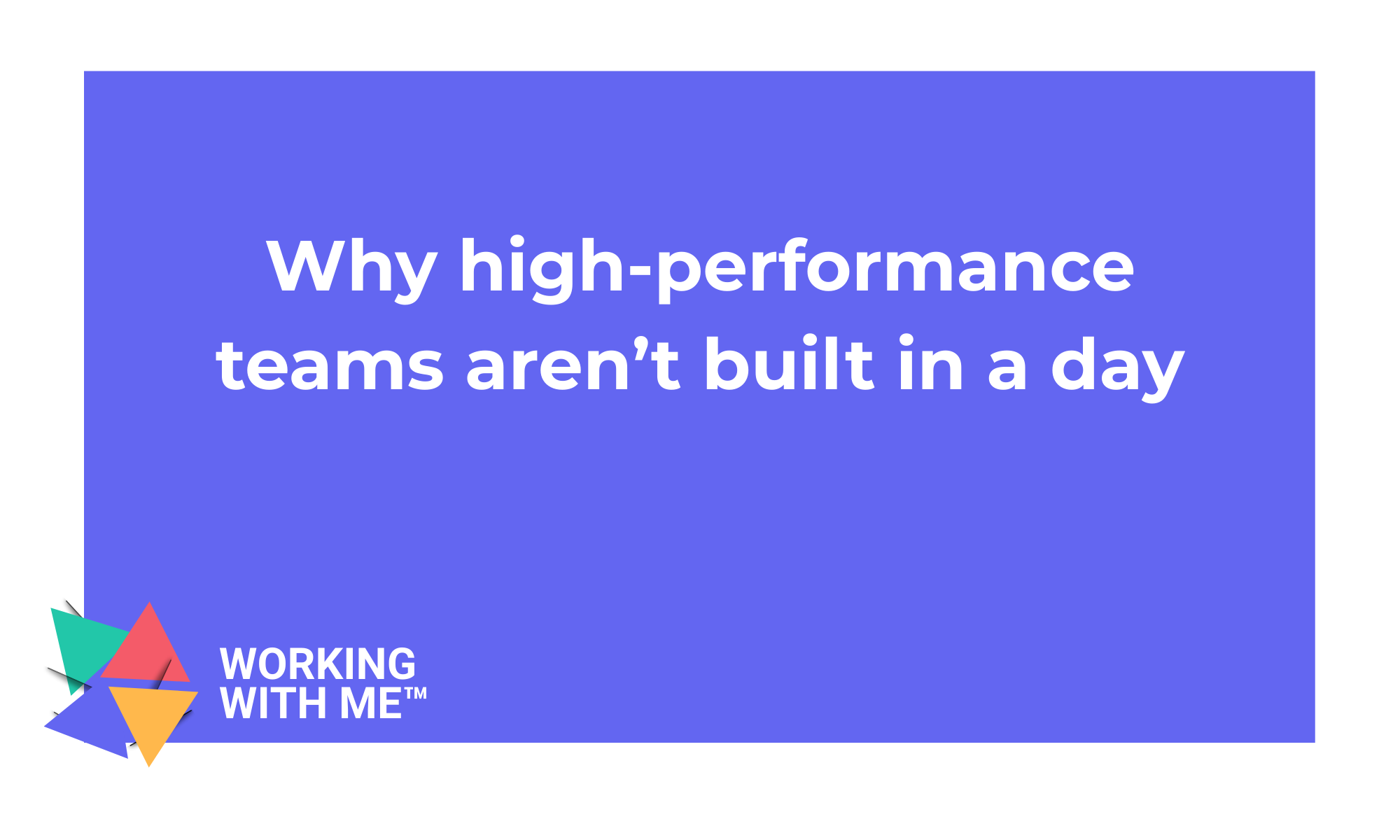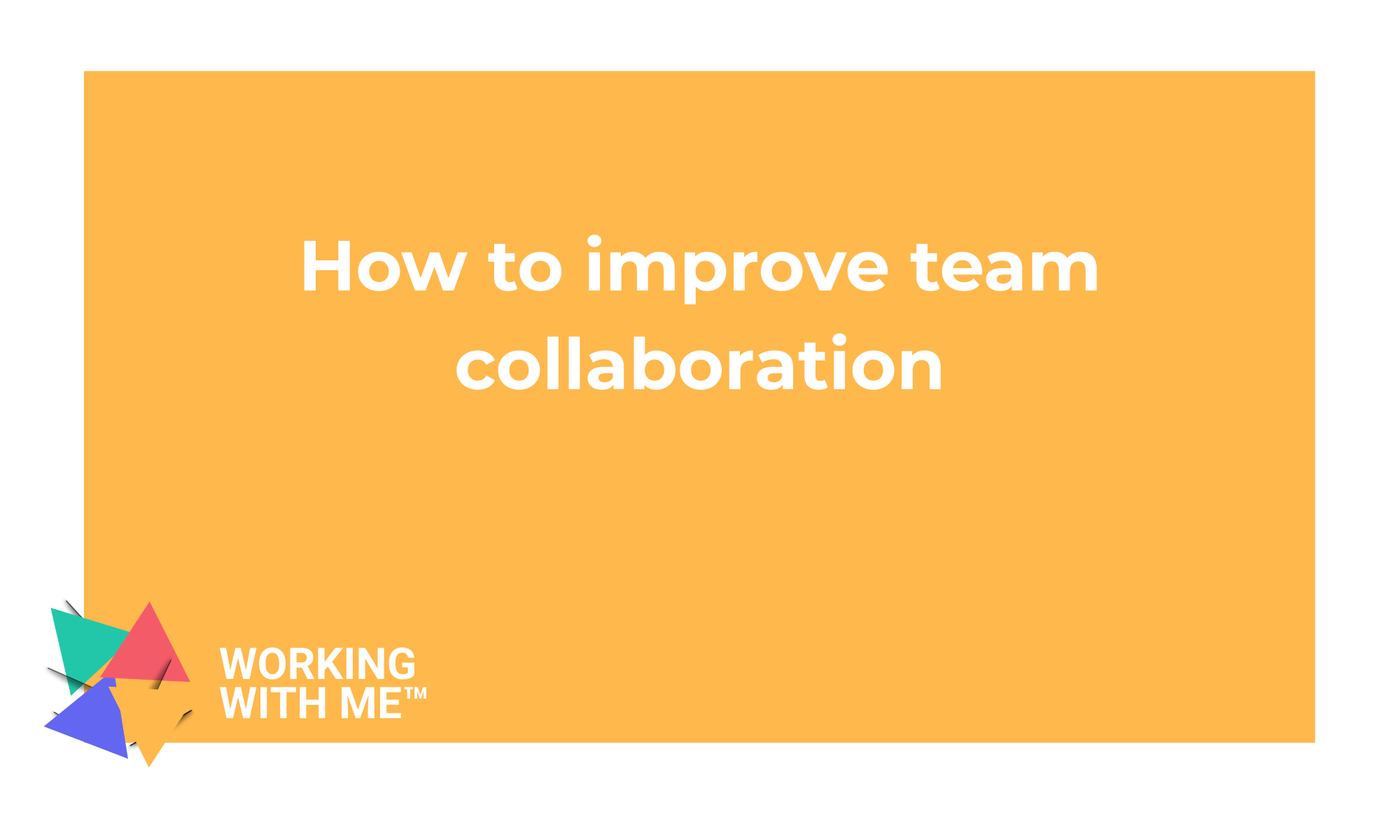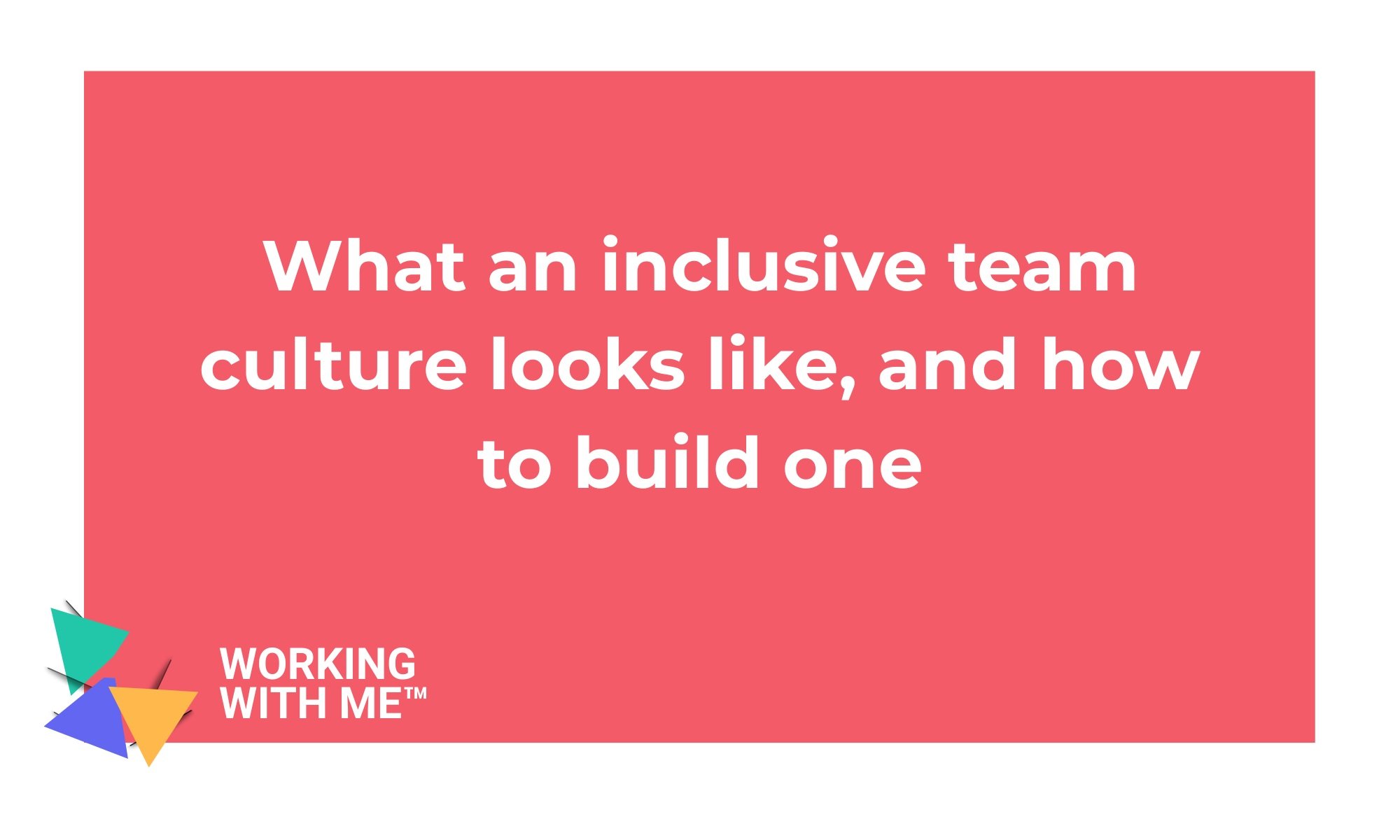Explore all articles from Working With Me™, covering team performance, inclusive leadership, founder psychology and culture that scales.

Establishing effective team rhythms
Every team has a rhythm, whether they know it or not. It’s the cadence of meetings, the flow of communication, and the pace at which work moves forward. When that rhythm is intentional, it creates momentum, clarity and trust. When it’s chaotic or inconsistent, even the best teams struggle to stay aligned.

Universal design at work: small changes, big impact
Inclusion is often talked about as a value, something to aspire to or promote, and the reality for most teams is that inclusion only gets attention when someone is struggling, or when a new hire asks for adjustments. That reactive approach puts pressure on individuals and makes inclusion feel like extra work, rather than a way to work better together.

How to build a feedback culture that works
Every leader wants their team to communicate better, and often feedback is the missing piece - either avoided altogether, or delivered in a way that causes more confusion than clarity. Without honest feedback, teams fall into habits of avoidance. Small issues grow into big ones. People talk around problems instead of addressing them, and performance, trust and psychological safety all suffer.

Building high-performing teams: the role of shared agreements
“High-performing” gets thrown around a lot when we talk about teams. It’s something every leader wants, but few can define clearly , let alone design for. Too often, performance is seen as an outcome of hiring the right people or having the right culture. But in reality, the most effective teams don’t just happen. They’re built, deliberately, practically and together.

Beyond the buzzword: making psychological safety a daily practice
Psychological safety at work gets talked about a lot in leadership circles. It's often described as the secret ingredient behind the highest-performing teams, and for good reason, when people feel safe to speak up, ask questions and admit mistakes, collaboration improves and problems get solved faster. But despite all the conversation, it can still feel difficult to know what psychological safety actually looks like day to day.

Why team charters help teams perform better together
When people say they want better communication or more collaboration, what they often mean is: "I’m not sure what’s expected of me." That’s where a team charter can make all the difference.
A team charter is more than a document. It’s a shared tool that helps teams clarify how they work, what they expect from each other and how they navigate day-to-day decisions.

How founder-led teams can scale culture without losing their edge
Founder-led teams often start with energy, urgency and a shared mission. That’s powerful, but it can’t run on adrenaline forever.
As a team grows, things that used to be automatic, such as decisions, expectations and even how people ask for help, start to feel out of sync. Culture doesn’t scale by accident.

Why high-performance teams aren’t built in a day
A strong team doesn’t just happen. It’s never just about charisma, chemistry or a single away day. Lasting performance comes from structure and the habits that support it.
If you’re a CEO, HR lead or team manager trying to build high performance, forget the motivational posters. Focus on rhythm, clarity and shared standards.

How to improve team collaboration
Most teams don’t struggle because people don’t get along. They struggle because no one’s clear on how to work together, what’s expected, what’s OK, and what’s not.
If you’re a manager or team lead, improving collaboration doesn’t mean adding more meetings or doing another away day. It means building habits that make everyday work easier, clearer and fairer.

What an inclusive team culture looks like, and how to build one
Inclusion isn’t just about who’s on the team. It’s about how the team works every day.
If you want to create a workplace where everyone can do their best work, you need more than policies and values statements. You need working habits that genuinely support people.
Here’s how to build an inclusive team culture that works in practice.

Accelerate Action? Well, let's talk hormones...
With International Women’s Day this week, we’ll hear a lot about accelerating action on gender parity. We’ll attend events, have valuable conversations, and hopefully, make some genuine commitments to change.

I’ll take the pursuit of excellence over the pursuit of winning every time.
Earlier this week, I was chatting with someone whose business is pretty similar to mine. Instead of feeling like we were in some weird silent competition, we were just… talking and enjoying learning from each other.

Find Your “You Free for a Call?” Mentor
Yesterday, I sent a quick message: "You free for a chat?". One call later, I’d untangled my thoughts and had clarity on my next steps.
This business isn’t my first, but it’s the first one where I’ve gone all in, and that lands differently.

It didn't work yesterday, but it just might today..
I've been challenging myself to read (or at least listen to) a chapter of a non-fiction book each day. Some days, I manage it; other days, life gets in the way.
But this year, I've decided to revisit some of my favourite personal development books for life and business.

